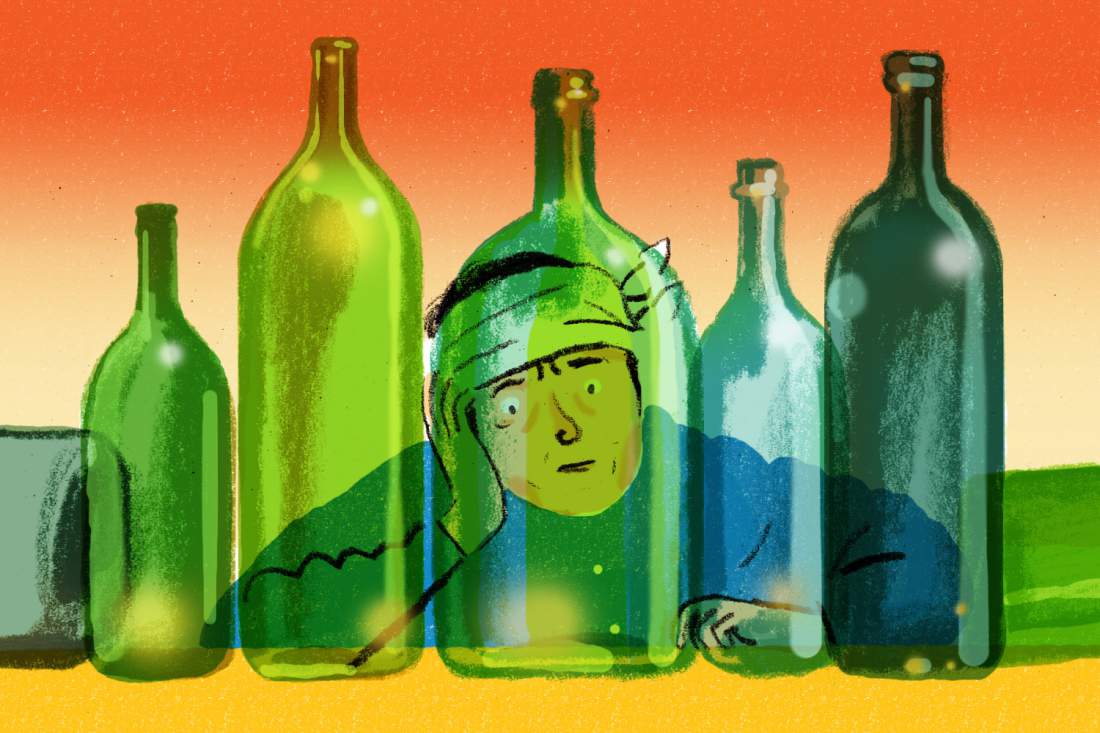We all know the feeling of waking up with a pounding headache, nausea and the overwhelming urge to curl up in bed for the rest of the day. Many of us accept this fate as just one of the downsides of having a bit too much to drink, and often swear we’ll never drink again, which is often forgotten when someone fancies a trip to the pub! However, why is it that we get these horrible hangover symptoms? Well, let’s have a look at the science and figure this out once and for all.
Shockingly, the amount we know about why we get hangovers is considerably less than you might think. The most commonly known theory is that of dehydration, and whilst the diuretic property (increase in urine production) of alcohol certainly supports this theory, simple dehydration is not the full story here.

Ethanol, the chemical that makes up what we know as ‘alcohol’, is broken down in the liver, first to acetylaldehyde (AA) (a toxic intermediary), then acetic acid, which is better known as the acidic component of vinegar. During this process, NAD+ — a compound found in every cell of the human body that is involved in many of the body’s essential functions — is converted to NADH. Without going into details, this causes an imbalance in NAD+/NADH levels. which is bad news. An imbalance can cause changes in the production levels of hormones, electrolytes and fats. Many scientists conclude that this is the underlying factor behind a hangover, but this is still disputed due to the lack of evidence of a relationship between hangover severity and electrolyte levels.
Another theory behind the hangover lies with AA. This incredibly toxic intermediary product is produced in the breakdown of alcohol. Due to genetic variations, some bodies can only break down AA into acetic acid very slowly, which leads to a build-up of AA. This is known as the ‘alcohol flush reaction’. Studies have shown that people with a slow AA breakdown are more likely to experience a hangover more quickly and with greater severity, compelling many scientists to believe that AA build-up is the real culprit behind a hangover. Therefore, when someone comes along and claims that they never get hangovers there may actually be some genetic truth to it.
Furthermore, your tipple of choice can also influence the severity of your hangover, with drinks containing high levels of congeners more likely to produce a severe hangover. Congeners, such as methanol, are toxic by-products formed in the process of making alcoholic drinks and are found in higher concentrations in darker-coloured drinks, such as red wine and rum. Contrary to popular belief, vodka may actually be your friend if you’re planning to avoid a bad hangover, due to it being a pale liquor with low congener levels — a win-win if you’re a fan of a vodka and coke!

So now we know what causes a hangover! Or at least, we know as much as scientists currently know about the subject. Whether you’re a fresher about to experience your first taste of university life, or a seasoned university veteran going into your final year, science’s advice to help curb that hangover is to drink in moderation, learn to accept water as your new best friend and stick to pale drinks with lower congener levels. Good luck!
By Phoebe Turner
Header image: Peter Oumanski for TIME.

